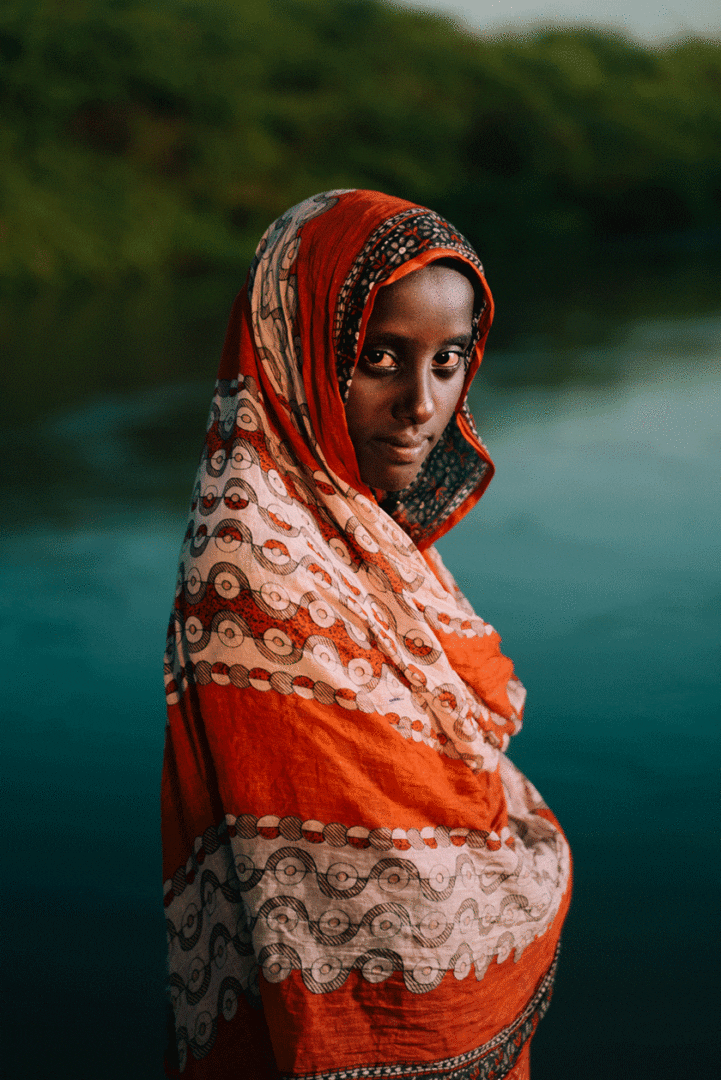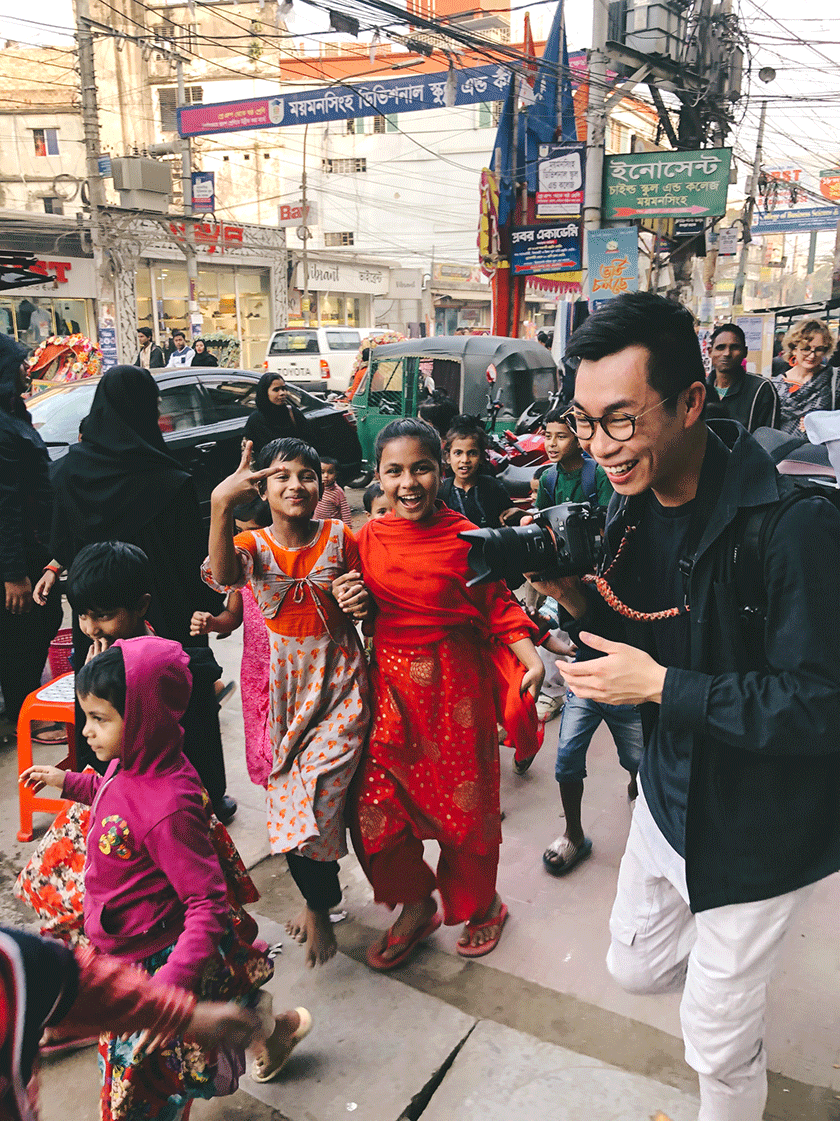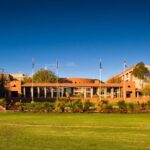The 22-year-old graduate was lauded for volunteering his filmmaking, photography and design skills to advocate for marginalised communities in Africa, Asia and regional Australia.
The Young Achievement Award is given to an outstanding young alumni up to the age of 35, and was presented to Wong at the 2020 Curtin Alumni Achievement Awards at the Ritz-Carlton, Perth, on Thursday 29 October.
It’s not the first time Wong has been recognised for his work, having been named WA’s Youth Volunteer of the Year in 2019. However, Wong admits he still was surprised to have won another award and be recognised as among the very best of the University’s 240,000 graduates.
“It feels really significant to have won this at the start of my career and to be recognised among such a huge body of alumni as somebody doing something special,” says Wong, who only graduated at the start of 2019.
“It’s encouraging as well, just to know that my hard work is resonating with people and that others do see it as inspiring.”
Mission to serve others
Wong’s personal values have been shaped by his Christian upbringing and inspired him to help others outside his social circle. By the age of 10, he had already begun raising funds for World Vision Australia’s 40-hour Famine.
Later, in his second year studying a degree in screen arts, creative advertising and graphic design at Curtin, he embarked on his first overseas volunteering trip, with the support of the John Curtin Scholarship Program.
His destination was Rafiki Africa Ministries – a children’s home in Uganda – where he was employed on a three-month volunteer contract to raise funds and build awareness of the organisation through filmmaking, photography and graphic design. At the time, he was just 19 years old.
“I was terrified,” Wong admits.
“I’d never been to Africa, I’d never been to a developing country, let alone by myself. I don’t think I’d ever been on a plane without my parents before. I had no idea what to expect.”
On arrival, Wong’s fears soon dissipated as he was wholeheartedly embraced by the children’s home, and started to forge close bonds with the staff and many of the children.
The flourishing emotional connections and the lessons learned from his degree helped him tell their stories faithfully and mindfully through different creative media.
“Some people think creative advertising and graphic design is all about making pretty posters and pictures, but it’s actually about how you tell a good narrative, and how you learn to empathise and connect with audiences,” says Wong.
When he returned to Australia, Wong staged an exhibition of his photographs at Mount Pleasant Baptist Church, raising an additional A$8,000 for the children’s home. The exhibition title – Voices Unheard – had particular significance.
“I never really liked the idea that some people are ‘voiceless’. I think everyone has a voice, but the issue is, we’re not listening,” says Wong.
“My role as a filmmaker and photographer is to amplify those voices and share their stories to people in places like Australia.”
Fighting for social justice
Buoyed from his experience with Rafiki Africa Ministries, Wong successfully applied for CameraPro’s inaugural Explorer’s Grant just after finishing his university studies. The grant helped fund a second volunteering opportunity in Africa – an adventure that proved to be particularly challenging.
He initially volunteered at the rural Buwooya Mission School in Uganda but later travelled to Ethiopia with healthcare provider EthiopiAid Australia, remote community charity Action Ethiopia, the Afar Pastoralist Development Association and the Association for Women’s Sanctuary and Development.

Here, Wong was set the most difficult task of his career. He was asked to raise awareness of violence against women in Ethiopia by filming interviews with girls and young women who had experienced physical and sexual violence – some who were as young as 12.
The resulting video captured the women’s journey from abuse to healing, and showed the integral role the sanctuary played by providing them with accommodation, counselling and education. It has been screened in conferences around the world, including in Canada and Taiwan.
“I realised that I had a role far greater than just being a filmmaker in that environment,” Wong says.
“How I acted could either add to this negative narrative of men, or offer a different perspective of a male. So, I took the time to listen, be interested in their story and share meals with them to make them feel valued and important.
“One of my approaches to making this film was asking them to share their experience of hurt and healing as if they were sharing to another young girl. It was amazing hearing their responses become encouraging and even motherly.”
Upon his return to Australia, Wong again staged an exhibition at his church, this time titled ECHO: Stories from East Africa, with Perth sound designer, David Chidgzey, who he had worked with at some of the organisations.
Wong encouraged visitors to step out of their ‘echo chambers’.
“When you look around, you see people driving similar cars, wearing the same clothes and earning the same amount of money. We think that’s normal and Australian life is the global perspective of wealth. In reality, we’re actually a very rich minority,” Wong explains.
“If you look at the global population, we are at the top of the global wealth distribution, but we don’t realise that because we always think that someone is richer than us.”
Learning from others
The two experiences in Africa laid the foundation for Wong’s next career moves, including upskilling and taking a different tack.
In late 2019, he journeyed to the Pilbara to film the positive impact of donated recycled sports equipment on remote Aboriginal communities for Fair Game Australia.
Just before the COVID-19 outbreak, he went to Bangladesh to help EmpowerAid, an Australian organisation that empowers international women in poverty.

Now, he is undertaking paid work as a media consultant, where he helps small non-profit and non-government organisations grow their presence on social media, build their brand and improve their photography. Most of his clients come through word-of-mouth recommendations.
With the pandemic putting any further international travel plans on hold, Wong has sought to capitalise on his time at home by studying an accelerated Master of Teaching (Secondary Education) at Curtin, which he hopes to finish by the end of 2021.
“An education degree seemed to be the most flexible degree I could do to upskill while I couldn’t travel. I’m hoping to get casual [teaching] relief work here in Australia, and, when I can travel internationally, the teaching degree will make it far easier for me to get a visa.
“It would be great to spend a year in a developing country as a teacher. I would be able to culturally immerse myself and serve and help others in a way that I can’t behind the lens of a camera.”
Wong says he tries to remember the lessons he learned volunteering to help him stay grounded.
“I think we’ve got what we want out of life wrong: we’re looking for comfort and enjoyment through consuming, rather than pursuing contentment with what we have and helping others.
“When I was travelling, it was really refreshing, just to be present with people, enjoying the day together and resting when there was time off, instead of filling that with entertainment. It sounds so simple, but I don’t think we do that very well here in Australia.
“Just because someone is in poverty or in a developing country doesn’t mean they have nothing to teach us. I think their approach to living is really incredible and we can learn a lot from them.”



